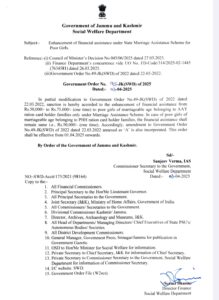List of MCQ with Answer on 4G Internet
-
What does 4G stand for? A. Fourth Generation B. Fourth Galaxy C. Fourth Gigabyte D. Fourth GigaHertz Answer: A
-
Which of the following is not a 4G technology? A. LTE B. WiMAX C. HSPA D. GSM Answer: D
-
What is the maximum theoretical download speed of 4G? A. 100 Mbps B. 1 Gbps C. 10 Gbps D. 100 Gbps Answer: B
-
Which of the following is a 4G standard developed by the 3rd Generation Partnership Project (3GPP)? A. LTE B. WiMAX C. HSPA D. CDMA Answer: A
-
Which country had the first commercial 4G network? A. South Korea B. United States C. Japan D. China Answer: A
-
Which frequency bands are commonly used for 4G networks? A. 700 MHz, 800 MHz, 900 MHz, 1800 MHz, 2100 MHz, 2600 MHz B. 900 MHz, 1800 MHz, 2100 MHz, 2600 MHz C. 700 MHz, 850 MHz, 1800 MHz, 2600 MHz D. 900 MHz, 2100 MHz, 2600 MHz Answer: A
-
Which of the following is not a benefit of 4G technology? A. Faster data transfer speeds B. Improved network capacity C. Greater reliability D. Lower latency Answer: C
-
What is the maximum theoretical upload speed of 4G? A. 100 Mbps B. 500 Mbps C. 1 Gbps D. 10 Gbps Answer: B
-
What is the maximum distance between a user and a 4G cell tower for reliable service? A. 1 mile B. 3 miles C. 5 miles D. 10 miles Answer: B
-
Which of the following is a common application of 4G technology? A. Video conferencing B. Email C. Text messaging D. Voice calls Answer: A
-
Which of the following is a key feature of 4G technology? A. Low power consumption B. High security C. High capacity D. Long range Answer: C
-
What is the minimum recommended download speed for streaming HD video on a 4G network? A. 1 Mbps B. 3 Mbps C. 5 Mbps D. 10 Mbps Answer: B
-
Which of the following is not a 4G technology developed by Qualcomm? A. LTE Advanced B. LTE Direct C. LTE Broadcast D. WiMAX Answer: D
-
Which of the following is not a frequency band commonly used for 4G networks? A. 900 MHz B. 1900 MHz C. 2300 MHz D. 2500 MHz Answer: B
-
Which of the following is a key requirement for 4G technology to support high-speed data transfer? A. Broadband wireless access B. Multiple input multiple output (MIMO) C. Orthogonal frequency division multiplexing (OFDM) D. All of the above Answer: D
-
Which of the following is not a 4G standard? A. WiMAX B. LTE C. CDMA2000 D. HSPA+ Answer: C




